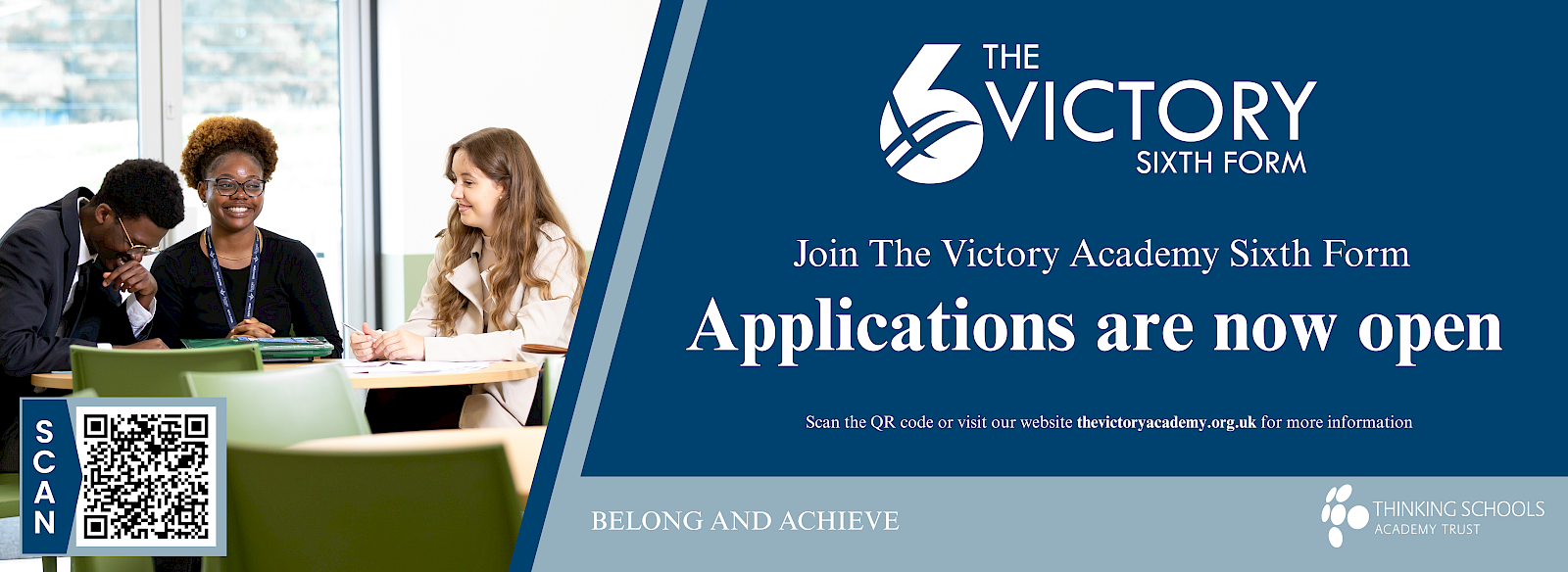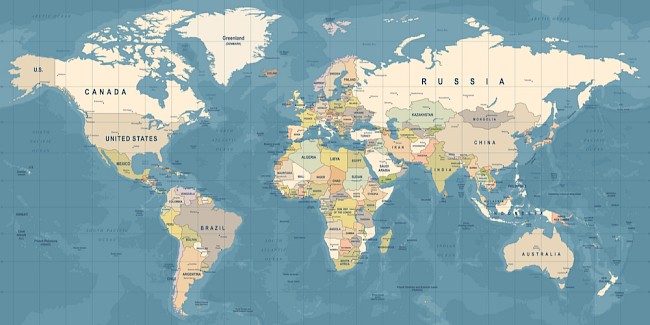
Applications for The Victory Academy Sixth Form are now open! To apply please click here.

Applications for The Victory Academy Sixth Form are now open! To apply please click here.
Our intent in Geography is to inspire in students a fascination and curiosity about the rapidly changing world around them and its people. The broad and ambitious curriculum that we offer for all pupils prioritises engagement, challenge and enrichment. All students will be prepared with the knowledge, skills and understanding to face the emerging challenges of the modern world and help shape our societies and environments at local, national and global scales.
The Geography curriculum is designed to give all students the confidence and experience to help inform and shape ideas; investigating the human and physical strands of this diverse and thought provoking subject. Our curriculum will enable students to become credible global citizens and have the cultural literacy to be role models for the future.

We intend to teach the students about the wider world as opposed to just their home location. Our intent is to help all students develop a desire to travel and respect other cultures through a development of awe and wonder for the world. We want our students to develop an awareness of different cultures and their origins; and how geographical context shaped those cultures to encourage empathy and a global awareness.
We want our students to develop an understanding of geographic information systems in a digital world and raise awareness of computing skills in Geography. We want to support students in understanding the impact that they as individuals have on our planet, from problems with plastics in the oceans to thinking about where their food comes from and reducing their carbon footprint.
Students are introduced early on to fieldwork skills and data presentation skills. This links to Mathematics and enquiry skills are established early and built upon throughout KS3. It is our intent that our students shall have independent Geographical investigation/enquiry skill set which can be applied in a number of contexts such as Science and Business Studies. This will help to support students to problem solve – a skill which is necessary in their future lives and prepare them for careers.
In Key Stage 3 we seek to embed the following core skills into our young geographers to help them understand the world around them and begin their life long geographical journey.
| Year 7 | Year 8 | Year 9 | Year 10 | Year 11 |
|---|---|---|---|---|
| In year 7, students develop a strong foundation geographical skills and concepts. Students start to develop geographical awareness of their local area before moving on to look at a range of scales and global locations. Student will study a mix or human and physical geography, including local fieldwork that start to promote investigative skills and understand the enquiry process. | In year 8, students develop their locational knowledge and spatial awareness. Students use existing knowledge to build a stronger understanding and make deeper connections of complex geographical issues. The key focus in year 8 is to explore some of the ‘big’ concepts in geography. Students will also carry out local fieldwork that will help them to develop investigative skills and understand the enquiry process. | In year 9, students continue to explore a combination of physical and human geography. Students are encouraged to become more reflective and aware of their impact on the environment. Students begin to develop a more complex set of ideas and questions about the world around them. | When starting their GCSE students will continue to build upon their knowledge gained from KS3. We start with looking at the development gap and focus on Nigeria as an example. Students focus on the concept of a development gap and the reasons why it exist. We move on to look at how the world is effected by physical geographical processes and the impacts that these have on people and places. | In year 11, we start by concluding of fieldwork requirements. Students complete 2 fieldwork studies over the course of their GCSE. We move on to look at how the UK economy has changed over time and how we have seen changes in London. We finish with the issue-evaluation. This section contributes a critical thinking and problem-solving element to the assessment structure. This provides students with the opportunity to demonstrate geographical skills and applied knowledge and understanding by looking at a particular issue derived from using secondary sources. |
Assessment at GCSE






“As a degree subject, geography is highly respected by employers. Geography graduates have one of the highest rates of graduate employment, pursuing a wide range of career paths. It’s often said that there is no such thing as a geography job; rather there are multiple jobs that geographers do.” https://www.rgs.org/geography/choose-geography/careers/
Surveyor, Town Planner, GIS Officer, Environment and Conservation, Transport Planner, Landscape Architect, Cartographer, Commercial/residential surveyor, Environmental consultant, Geographical information systems officer, Planning and development surveyor, Secondary school teacher, Town planner, Utilities and energy, International development, Logistics & distribution, Market research and media, Travel & tourism, Public sector management, Facilities management, Heritage management, Environment & conservation, International aid/development worker, Landscape architect, Logistics and distribution manager, Market researcher, Nature conservation officer, Political risk analyst, Sustainability consultant, Tourism officer
 Useful Study Resources
Useful Study Resources